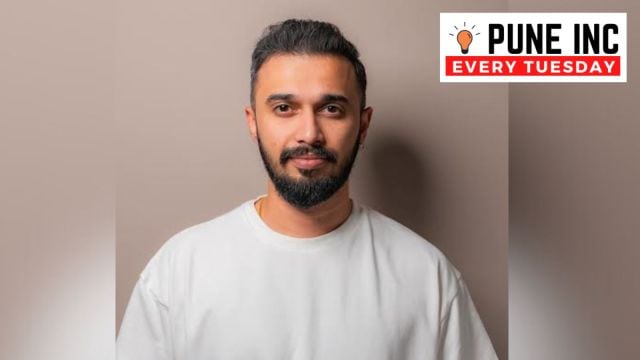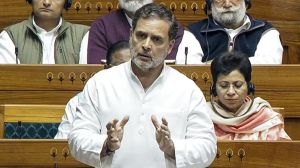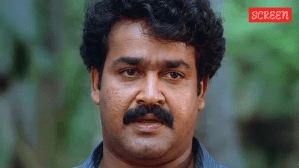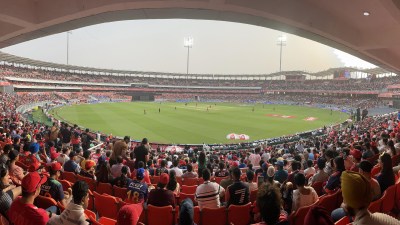Click here to join Express Pune WhatsApp channel and get a curated list of our stories
Pune Inc | Want to visit Mars or plunge into a deep ocean bed? Startup shows the way
Pune-based Question What's Real (QWR) says the basic idea is that very complex concepts, such as the deep ocean and creatures that live there, can now be rendered through simulation.
 Suraj Aiar, founder-CEO of the QWR, said most of the curriculum, from fifth grade to the tenth, covering STEM to language learning to social sciences, has been made into immersive modules. (Express Photo)
Suraj Aiar, founder-CEO of the QWR, said most of the curriculum, from fifth grade to the tenth, covering STEM to language learning to social sciences, has been made into immersive modules. (Express Photo)How can one transport a bunch of schoolchildren to the cold, dusty desert landscape of Mars? For an eight-year-old Pune-based startup, Question What’s Real (QWR), the solution comes via a headset and deep technology. In special laboratories set up in several schools across the country, the company is empowering pupils to travel to the red planet, touch its rocky surfaces, explore canyons, volcanoes and impact craters and come back to tell the tale.
QWR is a deep-tech, extended reality hardware manufacturing company that uses various technologies to blend real and virtual worlds. “The virtual reality system that we have basically converts most of the textbook knowledge into immersive interactive learning apps. Pretty much all the curriculum, from fifth grade to the tenth, covering STEM to language learning to social sciences, has been made into immersive modules,” says Suraj Aiar, founder-CEO of the QWR.
The company has reached 700-800 schools in 19 states, including 89 across Maharashtra, of which half a dozen are in Pune. “The basic idea is that very complex concepts, such as the deep ocean and creatures who live there – things that we cannot see in real life – can now be rendered through simulation to have the child study these complex subjects,” says Aiar.
Depending on the class strength and curriculum, among other factors, the average cost goes up to around 10 lakhs to 20 lakhs per laboratory. Working with governments through schemes, such as Samagra Shiksha Abhiyan of the Ministry of Education and the PM Shri, which aims to strengthen the schools managed by central and state governments and local bodies, QWR has deployed its technology in areas such as Kohima in Nagaland and the interiors of Madhya Pradesh and West Singhbhum in Jharkhand, among other places.
“We also have private schools but we have found the government to be a better promoter in rural India than private schools, who, mostly, still look at this innovation from a marketing lens,” says Aiar.
The company has been growing 2.5 times year-on-year and the focus now is, mostly, on scaling. “Scaling ourselves is both vertical and horizontal. Vertical scaling means coming up with a new generation of products and deploying them in existing markets. Horizontal scaling will entail exploring other new markets. At present, we are working on healthcare. We are excited to be working on providing Amblyopia therapy using virtual reality headsets,” says Aiar.
Another sector is defence, where QWR aims to enhance combat training and mission planning with immersive virtual environments. “VR will empower soldiers with realistic simulations, ensuring readiness and safety,” says a statement on the startup’s website, referring to virtual reality.
QWR is a class-one make-in-India manufacturer, which means that more than 51 per cent of its bill of material and value adds are done locally.
“We have our assembly unit and workshop in Pune, and we aspire to get to a certain threshold when it comes to the revenues, so that we can take leverage of schemes like the government’s Production Linked Incentive to be able to compete with China in the global markets,” says Aiar.
Though he was born and raised in Mumbai, he made the strategic decision to move to Pune because the city is a bedrock of engineers. “I prefer hiring fresher engineers because ours is a new field. Because we are focused on enterprise, we found that Pune has the kind of enterprise customers that we deal with, both, in terms of partners as well as customers,” says Aiar.
Click here to join Express Pune WhatsApp channel and get a curated list of our stories








